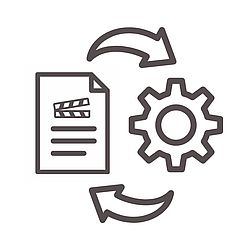
Resources for NBS Education
NBS EduDirectory - The resource landscape of NBS Education
This repository provides a comprehensive list of available resources, including guidance, reports, tools, and services developed around education about NBS. These NBS education resources and materials were discovered through EU-funded online repositories and through desk research. It is updated annually. You can also consult it as a database on PowerBI.
Have a look at further resources repositorites of the NBS and the education communities at the NBS EduHub.
Search results ( 31 - 35 of 60 )
Nature-Based Solutions in Education - Validation Report
This report provides an overview of the 15 learning scenarios developed in the Integrating Nature-Based Solutions in Education pilot project, the validation process and the main results of the validation.
Topic: Understanding of NBS
Educational Level: Primary Education
Language: English
Organisation: PPMI, European Schoolnet
Nature-Based Solutions Learning Activities For Ages 3 And Above. A Booklet For Non-Formal Educators.
This set of Learning activities is designed to help educators, instructors and trainers in Youth Centers, Youth Camps, NBS and/or STEM Camps and other forms of non-formal instruction, bring the topic of nature-based solutions (NBS) to children and youth across Europe through structured and engaging approaches. The activities are divided into four indicative age groups (ages 3 to 16+) and are customized to various levels of knowledge about NBS, while also being linked to at least one of the GreenComp Sustainability Competence Areas and/or NBS societal challenge areas, and other applicable key skills and competences.
Topic: Understanding of NBS
Educational Level: Non Specific
Language: Dutch English French German Greek Italian Lithuanian Portuguese Romanian Spanish
Organisation: European Schoolnet for NBS EduWORLD
![]()
Nature-Based Solutions Stories of Implementation and Good Practices. A Booklet of Educators’ experiences shared through the Scientix® STEM Discovery Campaign
This Booklet collects Stories of Implementation and Good Practices on nature-based solutions (NBS) education. The Stories of Implementation present ways in which educators adapted and carried out existing NBS Learning Scenarios (from the NBS EduWORLD project and beyond) in their own teaching context. The Good Practices include examples of successful NBS education, especially action-based projects like the greening of school premises. All activities in this Booklet were collected through the Scientix® STEM Discovery Campaigns 2024 and 2025.
Topic: Understanding of NBS
Educational Level: Non Specific
Language: English
Organisation: European Schoolnet
Nature’s Genius: Using NBS to Solve Environmental Challenges
This Learning Scenario introduces students to the impact of climate change and the role of Nature-Based Solutions (NBS) in addressing environmental challenges. Through a series of engaging activities – including investigations, experiments, discussions, and hands-on projects – students will explore concepts such as the greenhouse effect, climate change adaptation and biodiversity conservation. They will implement practical NBS projects such as composting, rain gardens, and insect shelters, fostering problem-solving skills and community engagement. The lesson culminates in a Green Day event, where students present their work to their peers, teachers, and the wider school community.
Topic: Understanding of NBS
Educational Level: Secondary Education
Language: English
Organisation: European Schoolnet
NatureLab
Platform for youth curriculum supporting students to learn environmental sciences.
Topic: Understanding of NBS
Educational Level: Secondary Education
Language: English
Organisation: TNC

Funded by the European Union. Views and opinions expressed are however those of the author(s) only and do not necessarily reflect those of the European Union or the European Commission. Neither the European Union nor the granting authority can be held responsible for them.
